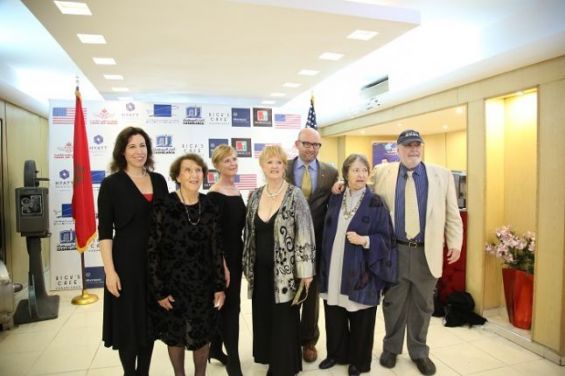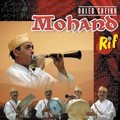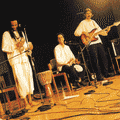Casablanca the movie is a classical piece of art that has marked the 40's in the United States of America. The film based on a unproduced stage play entitled «Everybody Comes to Rick’s», produced by Warner Bros and directed by Michael Curtiz, has been at the heart of a two-day event organized by the U.S Embassy and the Moroccan Ministry of Tourism. Screened on Saturday 18th of November, Yabiladi had the chance to interview Noah Isenberg, Professor of Culture at the Eugene Lang College, New School University of New York.
The New-Yorker who attended the event alongside a number of distinguished guests invited by the U.S Mission in Morocco to celebrate the 75th anniversary of Operation Torch, has written a book on the making of the notorious film. Interviewed by Yabiladi, Noah Isenberg spoke about his book «We’ll Always Have Casablanca : The Life, Legend, and Afterlife of Hollywood Most Beloved Movie» (Norton, 2017), the making of Casablanca, and the American landing in North Africa.
Tell us about yourself ?
I am a film historian from New York, I run the film program at the New School University and I am the author of the new book «We’ll Always have Casablanca : The Life, Legend, and Afterlife of Hollywood’s Most Beloved Movie».
How do you evaluate the fact that the director managed to imitate the situation in Casablanca while in the USA ?
The movie was shot entirely in South California in one of Warner Bros' studios. For me, this is my first time in Casablanca and I am so honored and happy to be here but this would give me the opportunity as well to see how the audience would react to the movie. Are they going to look at it as Americans do saying : «oh they really captured the flavor of this great North African city during the war» and that would be interesting for me to see.
I alone cannot make that distinction given that this is my first time in the country. During the time of the production in the spring of 1942, it had its premiere in November 26th almost exactly 75 years ago. So, they were trying to introduce to the American audiences the need to engage in the fight against fascism. Part of that was to show what was happening in Casablanca and what was happening with the refugees, the Vichy collaboration with the Nazi regime and the need for the Allies to fight against all forms of fascism. That is all relatively clear in the film and also accurate despite the fact that it’s all been made in urban California and in one of its studios.
Your book is also about the actors who starred in the movie and the making of it…
That was definitely a difficult process at the Warner Bros in terms of bringing in different actors to test for the roles. Humphrey Bogart was ideal from the very beginning, the producer Hal B. Wallis and the director Michael Curtiz, both knew they wanted to use him for the role of Rick, the owner of Rick’s Cafe. For the role of Ingrid Bergman, a Swedish actress, there were several others considered such as a French actress by the name of Michèle Morgan. She was brought in and tested for the role. They also considered for a while Hedy Lamarr, but she would have been very expensive and finally they got to Ingrid Bergman. It was one of her groundbreaking performances although she starred in other magnificent movies. She is most remembered for this film despite these other performances. That was something that even bothered her in her later life. But that gives you the idea about the way that these actors in the film became so famous for the roles that they played.
How about nowadays, has Casablanca been known for the movie regardless of the development it has witnessed after it ?
It gives you an idea that 75 years after the premiere how much the name of the movie means to international audience. That is to say, the association not the North African city not the Moroccan city but the movie. The other thing that is really important in the film is the way that it deals with the refugee crisis at the time and I think that there is a strong affinity. This is what happens when you have got Hollywood stars tell stories. The stars of the film are all telling a story and the audience is paying attention to that. This is the power of Hollywood.
This month we are celebrating the 75th anniversary of Operation Torch, how do you bring the two events together, the movie and the American landing ?
The link between the historical landing in North Africa by the Allied troops under general George S. Patton, their victory in the actual Casablanca and the movie is made by headlines in newspapers in the US specifically. Warner Brothers decided to rush the film to release. So, the link between Operation Torch and the movie in many respects is really a publicity link, PR, and that is why the film premiered on Thanksgiving day, a big holiday in the US, the 26th of November 1942. Because of Operation Torch, people were thinking of the actual Casablanca. Later on, in January 1943 at the Casablanca conference, the movie went to general release. Publicity is smart.
Tell us about your book ?
I built the book on Aljean Harmetz’s work «Round up the Usual Suspects : The Making of Casablanca». Without her book mine wouldn’t have existed. She interviewed a lot of actors who passed away by the time I began working on my book. What I did is taking the story of its production and bringing it to «now» : what the movie means for us today. This is my first opportunity to see what the movie means in North Africa. But otherwise in the book I focused on the way the audience has responded to it in France, Germany, Austria, Sweden and in other such places.





 chargement...
chargement...












